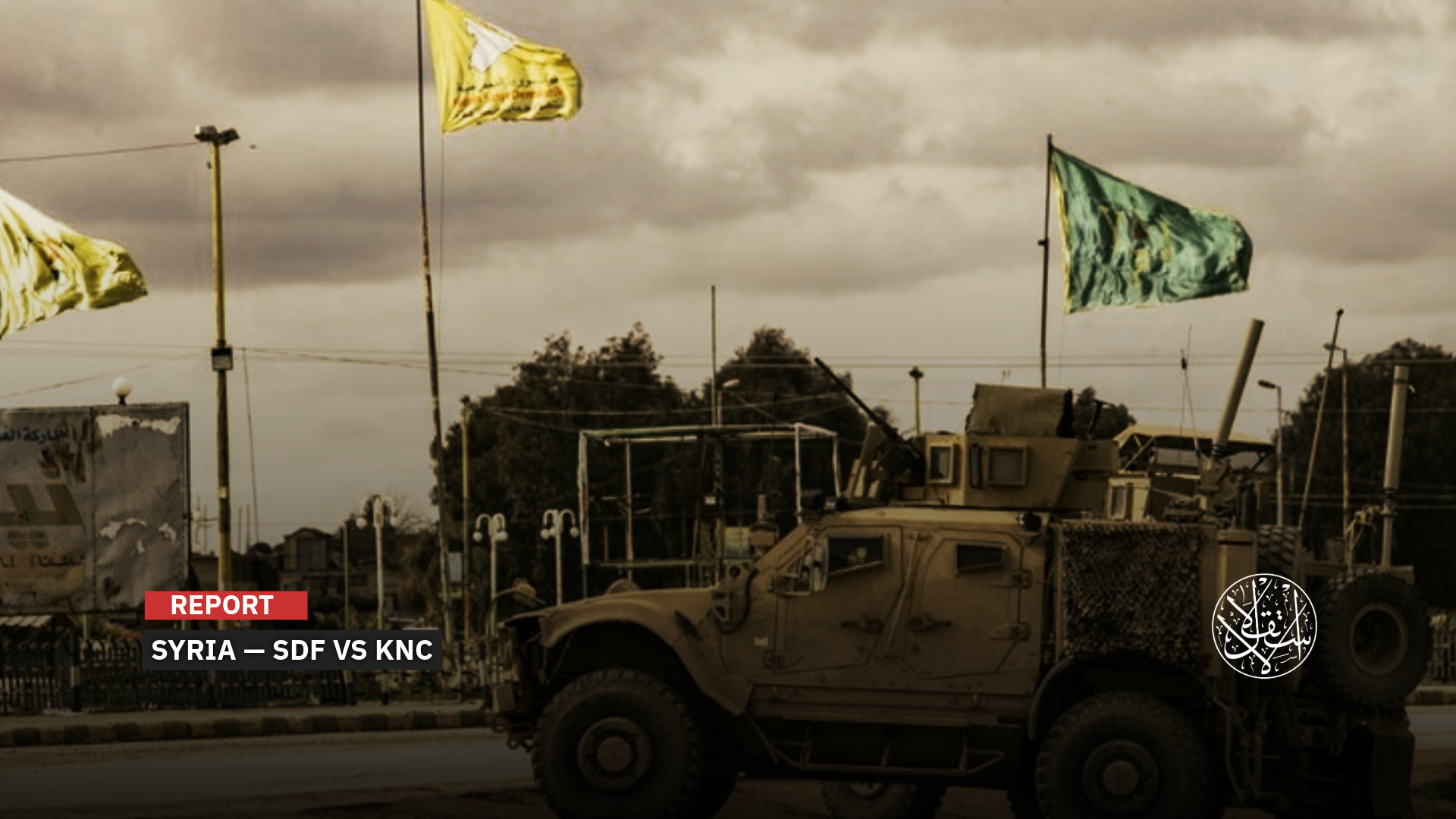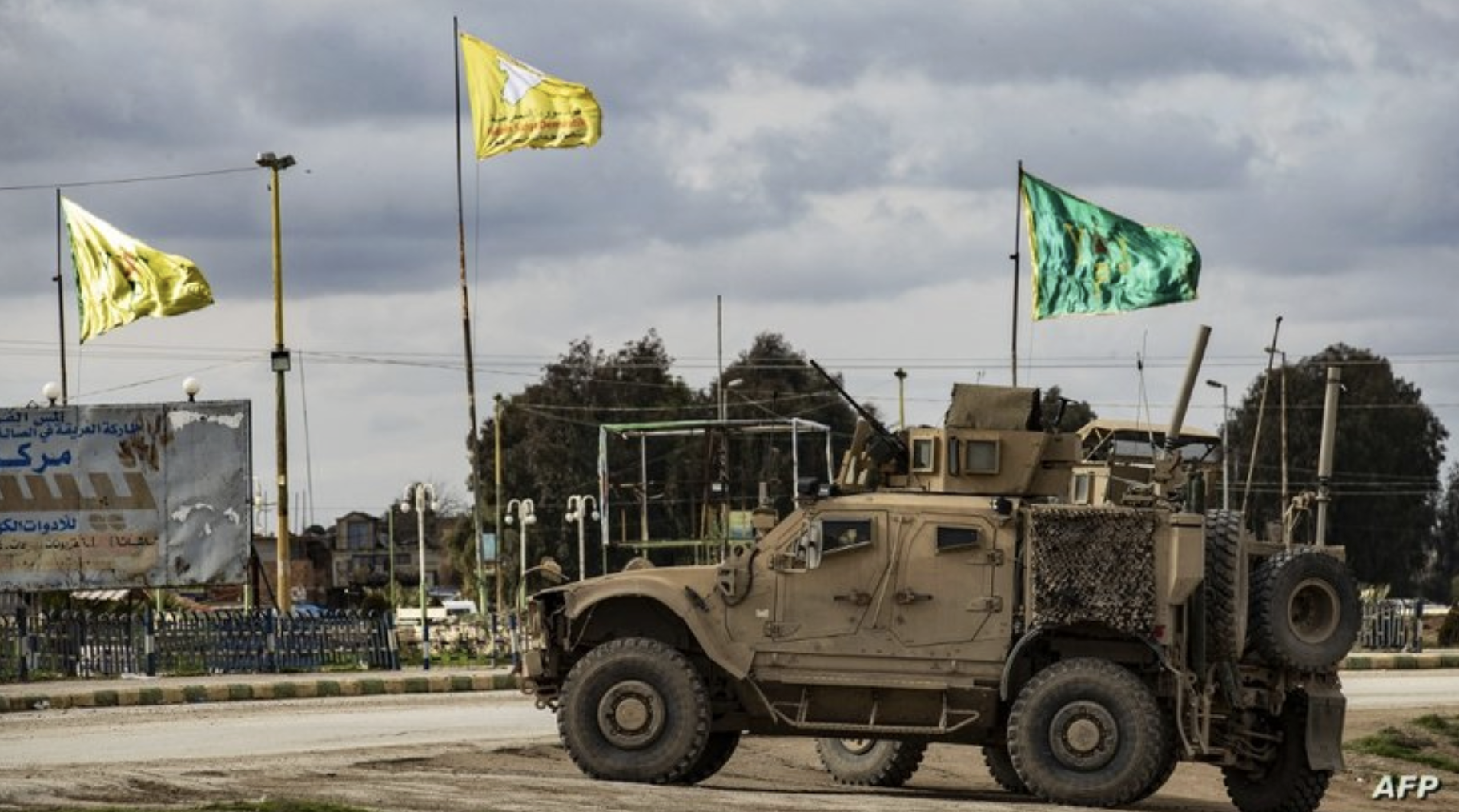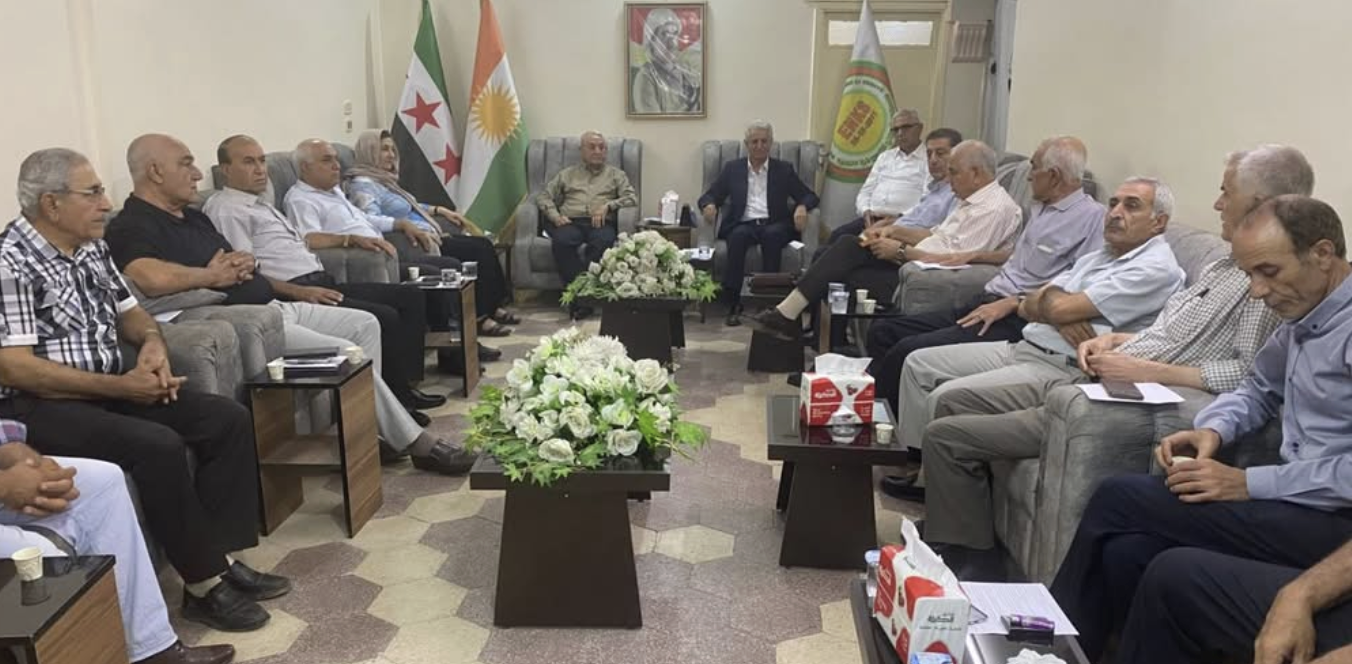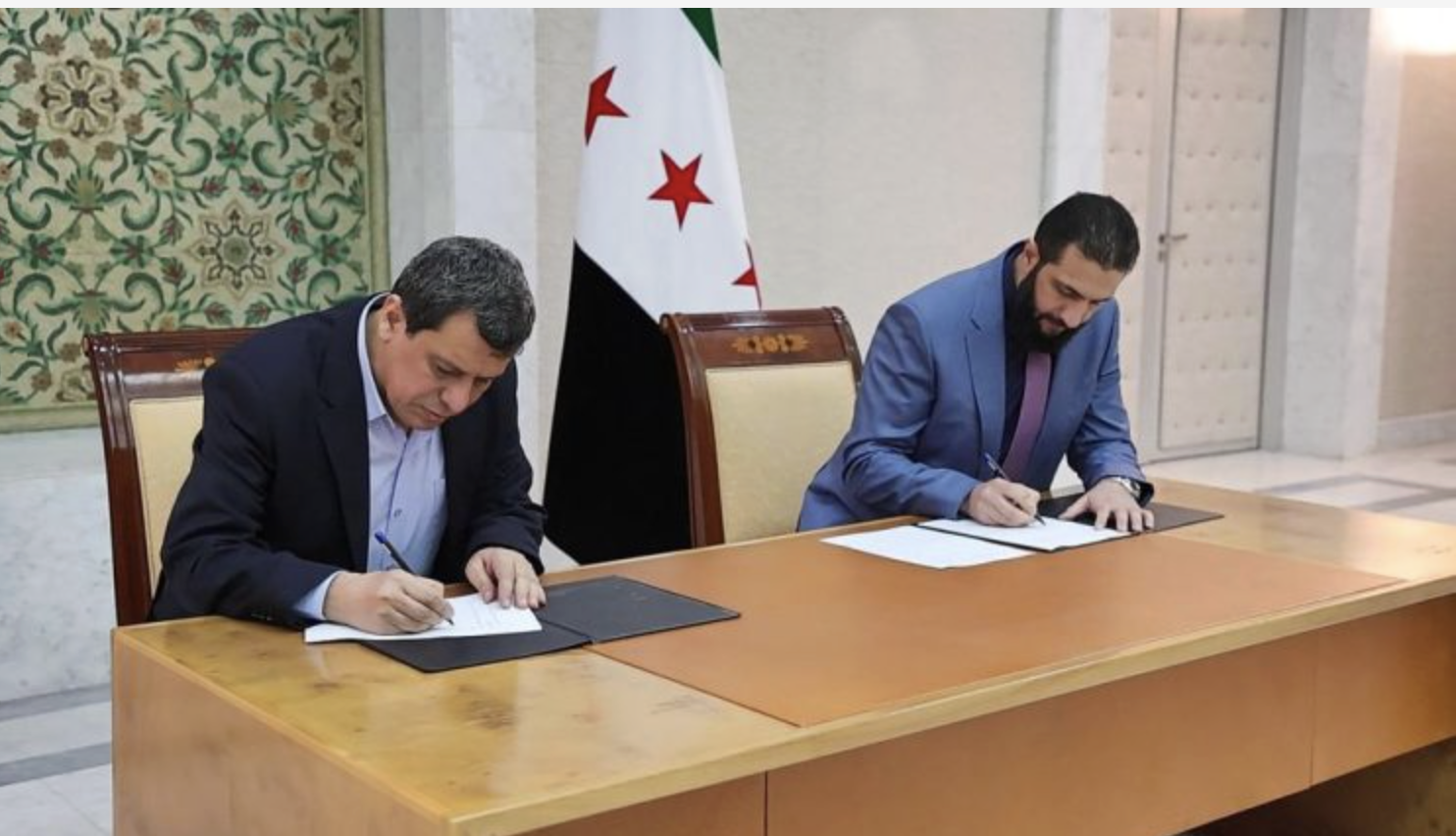Will the Kurdish National Council Get from Damascus What It Couldn’t from the SDF?

The SDF refuses to allow the Kurdish National Council to participate in the military and political administration of northeastern Syria.
As the Syrian Democratic Forces (SDF) explore new conditions to strengthen their negotiating position in the integration with the Syrian state, the Kurdish National Council (KNC) is emerging as a key player in political talks with Damascus over the future of northeastern Syria.
The KNC, once a rival of the SDF, confirmed it had received an official invitation from the Syrian government to meet with President Ahmed al-Sharaa in Damascus.
The SDF, the military arm of the Democratic Union Party (PYD) and its affiliates tied to the Kurdistan Workers’ Party, has long restricted the KNC’s activities in northeastern Syria. Over the years, disputes between the SDF and the KNC have prevented the latter from participating in any form of local administration. SDF-aligned groups have also arrested KNC members, with some still behind bars.
At the heart of the conflict is control over the region. The SDF refuses to allow the Kurdish National Council to engage in military, political, or security administration, preferring to consolidate authority on its own.

Kurdish Demands
During a meeting of its political parties, chaired by Council head Mohammed Ismail, the Kurdish National Council said on September 10, 2025, that it has been in contact with Damascus and is willing to meet President Ahmed al-Sharaa, though no date has been scheduled yet.
The planned talks aim to discuss Kurdish rights, demands, and the future of the country, independently of the Syrian Democratic Forces and the Democratic Union Party (PYD). Sources told Syria TV on September 9 that the invitation includes meetings with the Syrian president and Foreign Minister Asaad al-Shaibani.
The KNC reportedly prepared a list of 15 senior figures from its leadership, including former members of the National Coalition of Syrian Revolution and Opposition Forces and the Syrian Negotiation Commission, to attend, with the meeting likely to take place sometime in September 2025.
The Kurdish National Council maintains close ties with Turkiye and the Kurdish leadership in Iraq, particularly the Kurdistan Democratic Party led by Masoud Barzani. The KNC officially withdrew from the National Coalition of the Syrian Revolution and Opposition Forces in February 2025 after a decade-long membership, signaling the start of a new political phase in Syria. At the time, it said it planned to engage with the new administration under President Ahmed al-Sharaa to advance Kurdish rights.
Council spokesperson Faisal Youssef confirmed the KNC’s readiness to respond to the Syrian government’s invitation but emphasized that it would refuse participation in any process that could undermine Kurdish unity, according to Rudaw. Youssef also stated that the KNC remains committed to the decisions of the April 26, 2025, Unity of Kurdish Position in Rojava Conference held in Qamishli, asserting that they consider themselves the owners of the conference and its shared vision.
He added that the Kurdish National Council continues to engage with multiple parties, including SDF commander Mazloum Abdi and European and American stakeholders, while consistently calling for the formation of a joint Kurdish delegation.
After the fall of the Bashar al-Assad regime on December 8, 2024, rapprochement between the Kurdish National Council and the SDF resumed, despite the significant harassment Council members faced in al-Hasakah. Nevertheless, the KNC’s parties refused to attend an SDF conference in al-Hasakah on August 8, 2025, titled Unity of Position for the Components of Northeastern Syria.
The SDF continues to delay implementing the March 10, 2025, agreement between Mazloum Abdi and al-Sharaa, which calls for the full integration of civil and military institutions under the Kurdish Autonomous Administration into the Syrian state, including border crossings, airports, and oil and gas fields. The agreement comprises eight points, with joint committees expected to complete implementation by the end of 2025.
In light of these tensions, press reports indicate that the Kurdish National Council has hesitated to accept the Syrian government’s meeting invitation, fearing harassment from the SDF as discussions involve key Kurdish issues and demands in Syria.

A Breach by the SDF
The Kurdish National Council has sought to position itself in the middle ground in recent months, even skipping conferences organized by the SDF that pushed for a decentralized state and a constitution guaranteeing ethnic, religious, and cultural pluralism in Syria.
Damascus, however, rejects political decentralization or federalism, while senior SDF officials have repeatedly insisted in the media that they will not compromise on their demand for decentralized governance in Syria’s political system.
At the same time, the SDF has been keen to involve the Kurdish National Council, a former rival, and present its leadership to the Kurdish public and media as representatives of the conference, signaling an attempt to project Kurdish unity.
Mudar Hammad al-Asaad, head of the Supreme Council of Tribes in Syria, told Al-Estiklal that Damascus’ openness to all Kurdish currents and other ethnic and sectarian components helps strengthen security and stability.
“The Syrian government’s engagement with the Kurdish National Council is significant, as it indicates Damascus’ willingness to include all political currents across Syria,” he said.
Al-Asaad noted that the Kurdish community contains multiple currents and parties, most under the umbrella of the Kurdish National Council, while some independents remain outside both the KNC and SDF control.
He also said he had received information indicating that the delegation representing the Kurdish National Council in upcoming talks with Damascus was organized by the SDF, describing it as a clear attempt to exert behind-the-scenes influence over the council.
Al-Asaad stressed that the most important priority is for the SDF to implement the March 2025 agreement, in order to prevent further bloodshed in the region.

A Golden Opportunity
The Kurdish National Council is openly seeking to secure explicit recognition of Kurdish rights in Syria’s upcoming constitution. While the SDF focuses on governance and maintaining decentralization, the KNC emphasizes the political and social rights of Kurds within the framework of a new Syria.
Mudar Hammad al-Asaad stressed that the KNC must act independently of the SDF and the Kurdistan Workers’ Party, noting that such independence serves the interests of the Kurdish community first, as well as Syria as a whole, helping to avoid separatist or divisive projects. He added that the KNC includes patriotic Syrian leaders who hold significant political and social influence among Kurds in al-Hasakah.
The SDF has pursued negotiations with the new Syrian leadership on its own. The presence of multiple Kurdish parties in al-Hasakah has allowed these groups to step into the spotlight after repeated deadlocks between Damascus and the SDF in implementing the March 2025 agreement.
Syrian researcher Ammar Jallou told Al-Estiklal that negotiations between Damascus and the SDF have stalled because the SDF insists on issues related to governance and integration rather than Kurdish rights. The Kurdish National Council is concentrating on Kurdish rights and working to unify Kurdish demands across different factions.
Jallou noted that the stalled negotiations provide the KNC with a strategic opportunity to engage with Damascus directly as a Kurdish political current, presenting alternatives and options to achieve unity in Syria and highlighting parties that resist integration efforts concerning the SDF.
Sources
- Talks on Kurdish Integration Test Damascus’ Transition Plan
- KNCS Calls for 'Serious Dialogue' with Damascus to Secure Rights in a New Syria
- The Kurdish National Council Holds Its Monthly Meeting to Discuss Political Developments [Arabic]
- Conference of Northeastern Syria Components Calls for Democratic Constitution
- Kurdish National Council to Meet Syrian President in Damascus Independent of the SDF [Arabic]
- Civil and Political Groups in Northeastern Syria Call for Dissolution and Accountability of the SDF [Arabic]
- Kurdish National Council: Ready to Go to Damascus Provided Kurdish Unity Is Preserved [Arabic]











